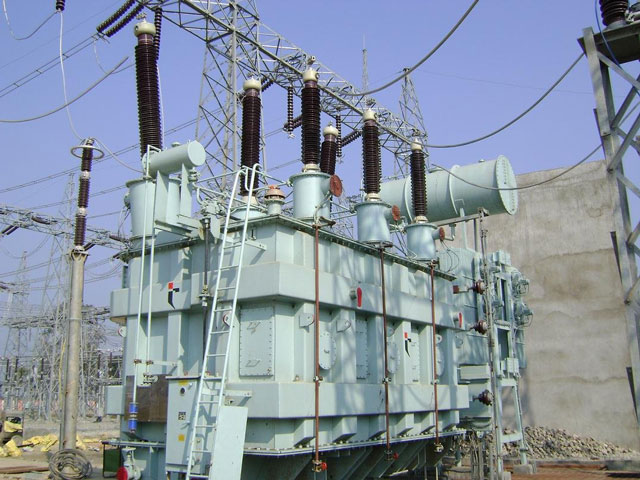The Distribution Companies of Nigeria (Discos) has alleged that poor transmission network protection mechanism by the Transmission Company of Nigeria (TCN) led to the nine grid system collapses recorded so far in 2019.
Mr Sunday Oduntan, spokesman of Association of Nigerian Electricity Distributors (ANED), the umbrella body of 10 power DisCos, said this on Wednesday in Abuja in a statement.
Oduntan said that the companies regretted the unfortunate incident that occurred on Sunday, June 30 at the TCN Substation in Benin leaving Nigeria in darkness for hours.
He said the DisCos remains available to offer their technical assistance to TCN, to ensure that valued customers do not remain in darkness.
Oduntan said that the failure of the TCN Benin substation was the second of such occurrence in the same city within a year.
He said the trend of burnt transmission stations and failed transmission substation incidents in Lagos, Calabar, Abuja, Enugu and Onitsha within the year was due to inadequate transmission protection mechanisms and procedures.
He said ANED also expressed displeasure over TCN’s practice of arbitrary load dumping on the DisCos whenever the TCN is having challenges managing energy on its grid, causing a myriad of commercial and technical problems.
The DisCos said these deficiencies of TCN were captured in a July 2017 System Adequacy Report published by the Independent System
Operator, a section of TCN.
According to him, ANED believes a properly protected transmission system will isolate faults.
“Unfortunately, the resultant effect is that we have experienced the ninth total black out in Nigeria this year (five times in January, once in April, twice in May and once in June).
“A rate of transmission failure that is in excess of one blackout per month is far beyond any international standard,” he said.
Oduntan said that over 100 partial and total transmission system collapses have been recorded since the sector privatisation in 2013.
“This magnitude of system collapses should not be a regular reality of our country,” he said.
The DisCos advised that rather than trading blames, TCN should focus on realising actual delivery of its acclaimed 8100MW wheeling capacity as the current figure “is based on nothing more than a computer simulation.
He urged the public firm to address its radial transmission network for better power delivery, by procuring the Supervisory Control and Data Acquisition (SCADA) to monitor the grid and trace
system collapse faults.
However, Oduntan quoted the TCN Managing Director, Mr Usman Mohammed, as saying: “If we have a functional SCADA system, it will show clearly what happened on the grid.
“This is why we in TCN, say deployment of SCADA is not an option, we have to deploy it.
“Nigeria has failed attempts to have a functional SCADA three times.
“The last one was between 2006 and 2007, I was in the Project Management Unit (PMU) of TCN when the World Bank financed it
and Nigeria spent about 46 million dollars.
“But the SCADA that was completed had significant deficiencies and it cannot see more than 40 per cent of the network.”
“On the 4.3 billion dollars investment, TCN said the 11 DisCos are regulated entities and not allowed to invest more than 150 million dollars per year or 13.6 million dollars per DisCo annually.
“Although, a recent French Development Agency (AFD) report says the DisCos need 181 million dollar funding annually to improve
the networks,” ANED said
However, Oduntan said this cannot happen unless such related funding is allowed in the regulatory framework
Oduntan said that ANED was hopeful that once their five year Performance Improvement Plans (PIPs) are approved by the Nigerian Electricity Regulatory Commission (NERC), the DisCos could get better regulatory framework that will allow the sector to improve.
“We believe that it is only when all NESI’s stakeholders decide to work together that we will be able to anticipate and solve these unfortunate events,” he said.
Reacting to the accusation, Mrs Ndidi Mbah, General Manager of TCN, insisted that the damage was caused by high voltage following a massive drop of load by the Distribution Companies ( DisCos).
She said that the massive load drop led to high voltage in the system, which shattered the lightning arrester in close proximity to the 75MX Reactor in the Benin substation.
“‘The shattered lightning arrester porcelain hit the reactor bushing causing further explosion on the reactor resulting in fire outbreak.
The News Agency of Nigeria (NAN) recalls that the National Grid on Sunday morning experienced a system collapse due to high voltage.



Leave a Reply